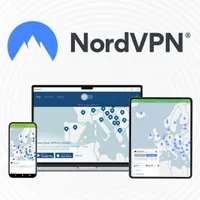Using your real name on social media? Here's why you should think twice
Are we all oversharing?

Sign up for any social media platform and you'll go through the same process – hand over your name, email, and other personal details, and then start building your profile. It's second nature. However, given how valuable (and dangerous) this information can be in the hands of a cybercriminal, should we be punching our real names into every site we use?
Okay, so you might wonder what you'd use instead – and pseudonyms are a more privacy-friendly alternative. Using a fake name might sound sketchy (and Meta certainly doesn’t appreciate it), but it's a useful way to limit the amount of your identifiable information on the web.
Keep reading, and I'll dig into why you might want to use a pseudonym on social media, and a few other things you can do to keep your name out of a hacker's hands.
When (not) to use your real name
So, when we're talking about using real names online, there are a few ways that it happens. You can input your details during the signup process or use a pseudonym during signup and then include your real details on your profile.
Inputting your details during signup carries the most risks from a privacy perspective. After all, you're adding identifiable information to the platform's database which could be targeted by hackers or involved in a data leak. It may also be possible for other users (or internet detectives in general) to search you out with your name, email, or a combination of the two.
If you opt to sign up with a pseudonym, however, you may be breaching the platform's terms of service – especially if you try to use a celebrity's name for the laughs.
It might ultimately be a little harder for other users to find you, but not impossible. Still, the use of pseudonyms is a necessity for some folks who are forced to take extra measures to protect their identity thanks to censorship and surveillance. If these people weren't allowed to sign up to social media platforms with alternative identities, they might be at higher risk of harassment (and worse).
Before I delve deeper into the pros of using a pseudonym, let's get into the cons.
The cons of using a pseudonym
Firstly, conjuring up a fake name to use when signing up for Meta, X, or any other social media platform might just sound like a hassle. Why go to so much trouble if you're a law-abiding netizen? Is your real name really that valuable to the internet's shadiest snoopers?
On its own? Probably not. However, your name can be combined with other personal information to build up a profile of your digital footprint. Plus, if someone follows you on social media and knows your name, they could study the profiles of your friends and family to use as leverage in a phishing campaign.
One of the main drawbacks of using a pseudonym is the lack of accountability. We've all seen keyboard warriors getting heated in the comments section or replies to a post – and anonymity emboldens people behind screens to say pretty much whatever they want. There's nothing obvious linking the real person back to their words, after all.
This was a large part of Facebook's controversial decision to enforce the use of real names across the platform. The site's vision is that if everyone uses their real name, interactions will be more transparent, everyone will be responsible for what they say, and instances of abuse and cyberbullying will diminish.
The name on your profile should be the name that your friends call you in everyday life. This name should also appear on a form of ID or document from our ID list.
Meta
Finally, using a made-up name online makes it harder for people to find and connect with you. This might be a positive for some folks, of course, but if you're an artist trying to promote your work, an academic doing research, or an entrepreneur looking to network, for example, it can be hard to build credibility using a pseudonym.
Some would-be customers might be put off by a fake identity and struggle to figure out the motivations, and verify the legitimacy, of the person using one – and ultimately not make that all-important purchase.
Why you should use a pseudonym
The biggest, best, and most obvious benefit of using a fake name is improved digital privacy – which is more valuable than ever. By using a pseudonym, you're limiting the amount of identifiable data that exists about you online, and hopefully preventing those details from being used in scams or harassment campaigns.
Unfortunately, the grim truth is that social media platforms are data buffers for hackers and scammers – and our tendency to overshare isn't helping.
A scammer who finds your name on one profile could use it to find you on other sites. Then, pooling the knowledge from your accounts, they cause all sorts of havoc – including:
- Identity theft: scammers with your name, email, and login details could put them to use and impersonate you on other sites. Fraudsters can rack up huge debts by taking out massive loans – all under the victim's name.
- Launch a phishing campaign: pretty much any info you post on social media can be utilized in a phishing scam. Using your name as a starting point, scammers can gather info about where you work, your family, and your hobbies to craft personalized scams – that usually involve an oh-so-polite request for your money.
- Take over accounts: a hacker can pair your real name with login information involved in data breaches to access your accounts – and then lock you out of them by changing the password. This is particularly dangerous if the account in question contains payment information.
- Sell data for profit: the dark web is where the data of everyday people is bought and sold for sometimes staggering prices. It's possible to buy logins, emails, SSIs, and more on the dark web, making the collection and sale of this info a lucrative business for scammers.
As I mentioned earlier, the use of pseudonyms can prompt folks to say and do some pretty grimy things online. On the other hand, they're a critical part of how online communities boost their privacy.
The scale of this protection can vary depending on the setting and the group in question. You'll often see gamers using usernames in place of their given names, for example. Sometimes it's just because they sound cool – sometimes it's because the gamer wants to curate a separate online space for their hobby. Either way, pseudonyms come in handy.
Whistleblowers, activists, and political dissidents might not want to tie their online activity to their real name.
Working professionals who want to keep up to date with the latest social media shenanigans without being searched up (and potentially harassed) by their students, clients, or patients can use pseudonyms to keep a low profile, too.
Marginalized communities tend to rely on pseudonyms and fake identities for more overt digital security. If homosexuality is criminalized in a country, or if transgender people are routinely discriminated against, members of these groups might adopt a new digital persona to make friends and date, safely.
Then, folks involved in investigative journalism, whistleblowers, activists, and political dissidents might not want to tie their online activity to their real name (and other identifiable details) – especially in countries where the freedom of the press is limited. Fake names give these individuals a chance to voice dissent without risking persecution or physical threats.
How to avoid online oversharing
If you've been inspired to reduce how much personal data you hand over to social media platforms, or if you're looking to seriously safeguard your digital privacy, there are a few things you can do right now to make an impact:
- Use Surfshark’s Alternative ID: Surfshark is my favorite cheap VPN because it comes jam-packed with security-enhancing tools. Alternative ID is included in every subscription tier, which is awesome, and creates a whole new digital identity you can use instead of your real one. We're talking a new name, email, and phone number. Alternative ID can help you avoid being embroiled in data leaks and scams, and even cut down on the amount of spam you receive.
- Try a temporary email service: pretty much every site requires an email address, these days, increasing the chances of your address being involved in a data leak. Today's top temporary email services quickly generate a burner email you can use (for a limited time) during the sign-up process.
- Don't make it easy for scammers: all these tools won't matter much if you're sharing sensitive details yourself. Don't include your real name or address in your carefully crafted X posts and don't be tempted to keep a list of login details as a draft post – it's like holding the door open for a thief.
- Invest in a VPN: if you'd rather not use a pseudonym but do want to improve your digital security, it's well worth checking out the best VPNs. VPNs encrypt all of your data, making it unreadable to would-be snoopers who'd like to use it for their own nefarious ends, allowing you to go about your day-to-day browsing with extra peace of mind.
NordVPN - from $3.39 per month
The best VPN for most people
NordVPN is our #1 VPN overall – and ticks every box. It has battle-tested security tools that'll keep even the most determined snoopers away from your personal details, as well as a Threat Protection function that'll banish dodgy links and malware. Plus, for all you Netflix fans, NordVPN unblocks every Netflix library out there. Take it for a test drive in your own time with a handy 30-day money-back guarantee.

River is a Tech Software Editor and VPN expert, helping take care of cybersecurity content on TechRadar, ranging from reviews, buying guides, and must-have VPN deals. River's expertise in the cybersecurity field opened their eyes to the startling amount of online snooping we accept into our daily lives. Now, River is committed to fighting for your right to digital privacy by shining a light on its biggest threats – and helping readers safeguard their data with the help of a VPN. Surfshark is River's favorite VPN, and they use it every day to keep their most sensitive details out of the hands of third-party trackers.
